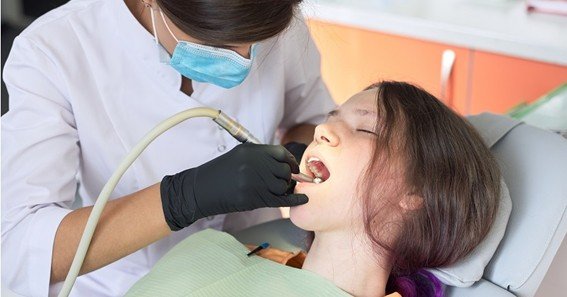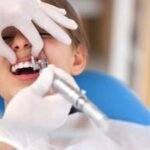For many, visiting the dentist can be a daunting experience, often leading to anxiety and discomfort. Clinics like Sleep Dentistry Brisbane offer a solution by providing sedation options that help patients feel relaxed and at ease during procedures. This article explores the specific conditions that qualify individuals for sleep dentistry, shedding light on its benefits and why it’s a vital option for those with dental phobias or complex treatment needs.
Overview of Sleep Dentistry
Sleep dentistry, also known as sedation dentistry, involves using medication to help patients relax during dental procedures. This approach caters to individuals with anxiety, dental phobias, or those undergoing complex treatments. Sedation options may range from mild sedatives, which help patients feel calm, to general anaesthesia, rendering patients completely unconscious.
Common conditions that qualify individuals for sleep dentistry include:
- Dental Anxiety: Patients with overwhelming fear or anxiety about dental visits may benefit significantly from sedation.
- Phobias: Specific phobias related to dental procedures can deter individuals from seeking necessary care, making sedation a viable option.
- Complex Procedures: Patients requiring extensive work, such as multiple extractions or oral surgeries, often find sedation helpful for comfort and efficiency.
- Gag Reflex: An exaggerated gag reflex can complicate dental examinations and procedures; sedation can help manage this issue.
- Medical Conditions: Certain medical conditions that make sitting still for long periods challenging can warrant sedation dentistry.
Sleep dentistry prioritises patient comfort, enabling many to receive necessary dental care without the associated stress or discomfort. This approach enhances the overall experience, allowing individuals to focus on their oral health.
Common Conditions Treated
Sleep dentistry effectively addresses several conditions that hinder patients from receiving necessary dental care. The sedation options provided allow individuals to undergo treatments with minimal discomfort and anxiety.
Anxiety and Phobia
Severe anxiety or phobia related to dental visits often leads to avoidance of care. Patients with dental anxiety experience overpowering fear at the thought of treatment, impacting their oral health. Sedation dentistry offers essential support by inducing relaxation, helping individuals manage their anxiety effectively.
Obstructive Sleep Apnoea
Individuals with obstructive sleep apnoea may struggle to remain still during dental procedures. This condition causes repeated interruptions in breathing while asleep, resulting in discomfort and anxiety during treatment. Sleep dentistry provides sedation, ensuring the person remains calm and still throughout procedures, thus enhancing safety and comfort.
Complex Dental Procedures
Patients requiring extensive dental work, such as multiple extractions or restorative treatments, typically experience discomfort and anxiety. The complexity of these procedures can deter individuals from seeking care. Sedation dentistry eases this burden, allowing patients to undergo necessary treatments without distress, enabling efficient and comprehensive care.
Benefits of Sleep Dentistry
Sleep dentistry provides numerous advantages for patients suffering from dental anxiety and other related conditions. This approach not only enhances patient comfort but also promotes better compliance with dental recommendations.
Increased Comfort
Sleep dentistry significantly enhances patient comfort during procedures. Sedation techniques allow individuals to experience less pain and discomfort. Many patients report feeling relaxed and at ease, which leads to a more positive dental experience. By alleviating sensations of pain and reducing awareness of the procedure, sleep dentistry ensures that patients can undergo necessary treatments without distress.
Improved Compliance
Sleep dentistry improves compliance with treatment plans. Individuals who previously avoided dental visits due to anxiety or discomfort often find themselves more willing to attend appointments with sedation options available. This increased willingness leads to more regular check-ups and necessary procedures. Better compliance results in improved oral health, as patients receive timely care and can address issues before they escalate. Overall, sleep dentistry serves as a critical support system for individuals seeking to prioritise their dental health.
Considerations and Contraindications
Certain factors affect eligibility for sleep dentistry. Evaluating these factors ensures safe and effective sedation options for patients.
- Medical History: Patients with specific medical conditions, such as respiratory disorders, cardiovascular issues, or neurological disorders, require careful assessment. These conditions may increase sedation risks.
- Medication Use: Individuals taking medications that influence sedation efficacy or result in adverse interactions must disclose their medication history. This knowledge allows for safe sedation planning.
- Allergies: Patients should inform healthcare professionals of any known allergies, particularly to sedatives or related substances. Allergic reactions can lead to severe complications.
- Pregnancy: Pregnant individuals may face unique risks associated with sedation. Dentists typically assess the necessity of sedation versus the potential risks for both the patient and the fetus.
- Mental Health Disorders: Individuals with certain mental health conditions, including severe anxiety disorders or substance abuse issues, may require closer monitoring. Their ability to cope with sedation varies, necessitating personalised treatment plans.
- Age Considerations: Elderly patients and children may present different challenges regarding sedation. Dosages and monitoring need adjustments to accommodate their physiological differences.
- Obstructive Sleep Apnoea: Patients with this condition need particular attention due to potential airway complications during sedation. Continuous monitoring of breathing is essential for these patients.
- Obesity: Obesity can complicate sedation procedures. It increases the likelihood of airway obstruction and may necessitate specialised care during sedation.
Each patient must undergo a thorough evaluation by a dental professional before being approved for sleep dentistry. This assessment ensures that sedation options align with their health needs and optimises safety during procedures.
Conclusion
Sleep dentistry offers a valuable solution for individuals struggling with dental anxiety and discomfort. By providing sedation options, it enables patients to undergo necessary treatments with reduced stress and greater ease. Those facing overwhelming fears or requiring extensive dental work can particularly benefit from this approach.
With a thorough evaluation by a dental professional, patients can find a tailored sedation plan that meets their specific needs. This not only enhances comfort during procedures but also encourages regular dental visits, ultimately leading to improved oral health. Embracing sleep dentistry can transform the dental experience for many, making it a vital consideration for those hesitant about seeking care.










